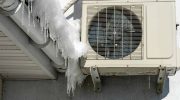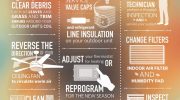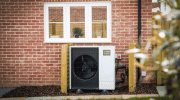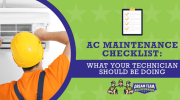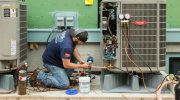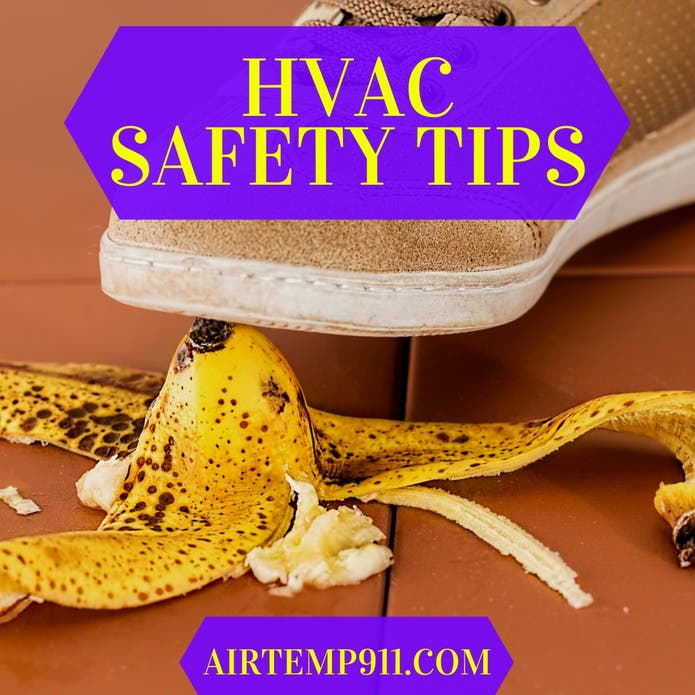
HVAC Safety Tips
When it comes to maintaining a safe and comfortable home, proper ventilation, heating, and air conditioning (HVAC) play a crucial role. Regular inspection, safety measures, and maintenance of your HVAC system are essential to protect your home and family.
One of the most important HVAC safety tips is to schedule regular inspections. A professional HVAC technician can identify potential issues and address them before they become major problems. They will check for leaks, blockages, and proper functioning of the air conditioning and heating systems.
Another critical aspect of HVAC safety is ensuring proper maintenance. Regular cleaning and replacing of filters help improve air quality and prevent the build-up of dust, allergens, and pollutants. Neglecting maintenance can lead to decreased efficiency, higher energy costs, and even potential hazards.
Lastly, it’s essential to prioritize safety measures when it comes to your HVAC system. Make sure there is proper ventilation for combustion appliances to prevent the accumulation of carbon monoxide. Install smoke and carbon monoxide detectors near the HVAC unit and throughout your home to ensure early detection of any potential hazards.
By following these HVAC safety tips, you can protect your home and family, maintaining a comfortable and healthy living environment. Don’t neglect regular inspections, prioritize maintenance, and implement necessary safety measures for a well-functioning HVAC system.
Importance of HVAC Safety
Ensuring the safety of your HVAC (Heating, Ventilation, and Air Conditioning) system is crucial for the well-being of your home and family. Regular inspection and maintenance of your HVAC system are essential to prevent potential hazards and maintain optimal performance. Here are some reasons why HVAC safety is important:
- Air Quality: A properly maintained HVAC system ensures clean and fresh air circulation in your home. Regular cleaning and filter replacement prevent the buildup of dust, dirt, allergens, and pollutants, improving the indoor air quality and reducing the risk of respiratory issues.
- Fire Safety: HVAC systems, especially those involving heating and ventilation, can pose a fire hazard if not properly maintained. Regular inspections and maintenance help identify any potential issues with electrical connections, faulty wiring, or obstructed ventilation, reducing the risk of fire accidents.
- Energy Efficiency: Properly functioning HVAC systems consume less energy, leading to lower utility bills and reduced environmental impact. Regular maintenance, including cleaning and lubrication, ensures optimal performance and prevents energy wastage. It also prolongs the lifespan of the system, saving you money on premature replacements.
- Carbon Monoxide Safety: HVAC systems that utilize combustion, such as furnaces and boilers, can produce carbon monoxide if not maintained correctly. Carbon monoxide is a dangerous, odorless, and colorless gas that can be lethal in high concentrations. Regular inspections and maintenance of combustion-based HVAC systems are crucial to detect any potential leaks or malfunctions, preventing carbon monoxide poisoning.
- Prevention of HVAC Failures: Neglecting HVAC system maintenance can lead to unexpected breakdowns and failures, especially during extreme weather conditions. Regular inspections, cleanings, and tune-ups help identify and address potential issues before they escalate, minimizing the chances of system failures and the need for emergency repairs.
Remember, HVAC safety should not be overlooked. Regular inspections, proper maintenance, and following safety guidelines can protect your home and family from potential hazards, ensure optimal performance, and extend the lifespan of your HVAC system.
Common HVAC Hazards to Avoid
When it comes to HVAC systems, there are several hazards that homeowners need to be aware of. By being proactive and taking certain precautions, you can protect your home and family from potential dangers. Here are some common HVAC hazards to avoid:
- Poor Ventilation: One of the main hazards associated with HVAC systems is poor ventilation. Without proper airflow, harmful pollutants and contaminants can accumulate in your home, leading to poor indoor air quality. To avoid this hazard, it’s important to regularly inspect and clean your HVAC system’s air filters and vents.
- Improper Heating: Another hazard is the improper heating of your home. When your HVAC system is not properly maintained, it can lead to overheating, which can be a fire hazard. Make sure to schedule regular inspections and maintenance for your HVAC system to ensure it is working efficiently and safely.
- Gas Leaks: For homes that use gas-powered HVAC systems, the risk of gas leaks is a major concern. Gas leaks can lead to carbon monoxide poisoning, fires, and explosions. It is essential to have your HVAC system inspected by a professional yearly to detect any leaks and to install carbon monoxide detectors throughout your home.
- Electrical Issues: Electrical problems can also pose a hazard when it comes to HVAC systems. Faulty wiring or improper installations can lead to electrical shocks, short circuits, and even electrical fires. It is crucial to hire a licensed electrician for any HVAC installations or repairs to ensure the electrical system is properly handled.
Remember, regular maintenance and inspections are crucial to keep your HVAC system functioning safely and efficiently. Don’t hesitate to reach out to professionals for assistance and advice to minimize the risk of any hazards.
Maintaining Proper Ventilation
Proper ventilation is essential for a safe and comfortable home environment. It helps to remove stale air, control temperature, and reduce the build-up of harmful substances such as carbon monoxide. Here are some key tips to ensure proper ventilation in your home:
- Regular inspection: Schedule regular HVAC inspections to check for any issues with your air conditioning and heating systems. A professional inspection can help identify and resolve ventilation problems before they become serious safety concerns.
- Clean air filters: Clean or replace your air filters regularly to ensure proper airflow and filtration. Clogged filters can restrict airflow and reduce the effectiveness of your ventilation system.
- Use exhaust fans: Utilize exhaust fans in bathrooms, kitchens, and other areas prone to moisture and odors. These fans help remove excess humidity and prevent the growth of mold and mildew.
- Open windows: Open windows when weather permits to allow fresh air to circulate throughout your home. This can help flush out indoor pollutants and improve indoor air quality.
- Keep vents unobstructed: Ensure that vents and registers are not blocked by furniture, curtains, or other objects. Blocked vents can impede airflow and reduce the efficiency of your HVAC system.
- Install carbon monoxide detectors: Install carbon monoxide detectors near sleeping areas and other key locations in your home. These detectors can alert you to the presence of this odorless, toxic gas and help prevent carbon monoxide poisoning.
- Proper insulation: Ensure that your home is properly insulated to prevent drafts and maintain a comfortable indoor temperature. Good insulation can also help reduce the need for excessive heating and cooling, improving energy efficiency.
- Consider a heat recovery ventilation system: If your home lacks proper ventilation, consider installing a heat recovery ventilation (HRV) system. HRV systems exchange stale indoor air with fresh outdoor air while recovering heat, making them energy-efficient ventilation solutions.
Maintaining proper ventilation is crucial for promoting a healthy and safe living environment. By following these tips, you can ensure optimal airflow and ventilation in your home, protecting the well-being of your family.
Carbon Monoxide Awareness
One of the most important aspects of HVAC safety is being aware of the dangers of carbon monoxide (CO) poisoning. Carbon monoxide is an odorless, colorless gas that can be deadly if not detected. It is produced by the incomplete combustion of fossil fuels, such as gas, oil, and coal.
To protect your home and family from carbon monoxide poisoning, follow these tips:
- Install carbon monoxide detectors: Make sure you have carbon monoxide detectors installed on every level of your home, especially near sleeping areas. Test them regularly to ensure they are in working order.
- Inspect HVAC systems: Have your heating, ventilation, and air conditioning (HVAC) systems inspected annually by a licensed professional. They can check for any potential carbon monoxide leaks or other safety issues.
- Service fuel-burning appliances: Regularly maintain and service fuel-burning appliances such as furnaces, water heaters, and stoves. This can help detect any potential leaks or malfunctions that could lead to carbon monoxide buildup.
- Avoid idling cars in garages: Never leave a car running inside a closed garage, even if the garage door is open. This can lead to the buildup of carbon monoxide in the garage, which can seep into your home.
- Proper venting: Ensure that all fuel-burning appliances are properly vented to the outside. This includes fireplaces, wood-burning stoves, and gas dryers.
- Know the symptoms of carbon monoxide poisoning: Symptoms of carbon monoxide poisoning can include headaches, dizziness, nausea, confusion, and difficulty breathing. If you or your family members experience these symptoms and suspect carbon monoxide poisoning, immediately leave the area and seek medical attention.
By following these carbon monoxide awareness tips and taking the necessary precautions, you can help ensure the safety of your home and family.
Preventing HVAC Fires
When it comes to the safety of your home and family, preventing HVAC fires should be a top priority. Here are some important tips to keep in mind:
- Ensure proper ventilation: Proper ventilation is essential for the safe operation of your HVAC system. Make sure that vents, exhausts, and ducts are clear of any obstructions to prevent overheating and potential fire hazards.
- Regular inspection: Regularly inspect your HVAC system for any signs of damage or wear. Look for loose wires, frayed insulation, or any other issues that could pose a fire risk. If you notice anything concerning, contact a professional for immediate repair.
- Maintain proper safety measures: Always follow safety guidelines provided by the manufacturer. Keep flammable materials away from your HVAC equipment, and never store anything on or near the unit. Additionally, ensure that your home has working smoke detectors and fire extinguishers in case of emergencies.
- Proper maintenance: Regular HVAC maintenance is crucial for preventing fires. Keep air filters clean and replace them as needed to maintain proper airflow and reduce the risk of overheating. Schedule annual professional inspections and cleanings to ensure that your system is operating safely and efficiently.
- Be cautious with heating equipment: Take extra precautions when using space heaters, fireplaces, or other heating devices. Keep them at a safe distance from any flammable materials and always turn them off when you leave the room or go to sleep. Avoid using extension cords with heating devices and ensure that they are plugged directly into a wall outlet.
- Know what to do in case of a fire: Make sure everyone in your home knows how to respond in case of a fire. Have an emergency plan in place and practice it regularly. Teach your family members how to safely evacuate the house, where to meet outside, and how to call for help.
By following these tips and taking the necessary precautions, you can greatly reduce the risk of HVAC fires in your home. Remember that the safety of your family should always be a top priority, so don’t hesitate to seek professional help if you have any concerns or need assistance with your HVAC system.
Regular HVAC Maintenance
- Perform regular maintenance on your HVAC system to ensure efficient and safe operation.
- Change air filters regularly to improve air quality and prevent dust and debris from accumulating in the system.
- Inspect the heating and cooling equipment for any signs of damage or wear. Replace any faulty components to prevent safety hazards.
- Clean the air vents and ducts to remove dust, allergens, and other contaminants. This will improve the air quality and prevent respiratory problems.
- Check the thermostat regularly to ensure accurate temperature control. Calibrate or replace if necessary.
- Test the safety features of your HVAC system, such as carbon monoxide detectors and smoke alarms.
- Inspect the outdoor unit and remove any debris or obstructions that may hinder proper airflow.
- Check the insulation around the HVAC system to ensure it is properly sealed. This will improve energy efficiency and reduce heating and cooling costs.
- Schedule a professional inspection and maintenance service at least once a year. A qualified technician will identify any potential issues and ensure the safe and efficient operation of your HVAC system.
Protecting Your HVAC System from Weather Damage
Extreme weather conditions can have a significant impact on your HVAC system’s performance and lifespan. To ensure that your heating, ventilation, and air conditioning (HVAC) unit remains in optimal condition, it’s important to take the necessary steps to protect it from weather damage. Here are some essential tips to keep your HVAC system safe:
- Clear the surrounding area: Remove any debris, leaves, or branches that may have accumulated near your HVAC unit. These objects can obstruct the airflow and cause your system to work harder, leading to potential damage.
- Install a protective cover: Consider using specialized HVAC covers during harsh weather conditions, such as snowstorms or heavy rainfall. These covers are designed to shield the system from water, ice, and debris, preventing any damage to vital components.
- Regularly inspect for leaks: Check your HVAC unit for any signs of leaks, such as water stains, condensation, or moisture buildup. If you notice any issues, contact a professional technician to address the problem promptly.
- Protect the outdoor unit: If your HVAC system has an outdoor unit, make sure it’s properly protected. This can include installing a fence around it or using a protective screen to prevent damage from falling objects or severe weather conditions.
- Keep the area clean: Regularly clean the area around your HVAC system, ensuring that it remains free of dirt, dust, and debris. This will help maintain proper airflow and prevent any blockages that could strain the unit.
- Schedule regular maintenance: Don’t neglect the importance of professional HVAC maintenance. Regular inspections and tune-ups can identify potential issues early on, preventing weather damage and extending the lifespan of your system.
Remember, protecting your HVAC system from weather damage is crucial to ensure its efficiency, safety, and longevity. By following these simple tips and investing in regular maintenance, you can safeguard your investment and enjoy reliable heating and cooling all year round.
Safety Measures for DIY HVAC Projects
When it comes to DIY HVAC projects, it’s important to prioritize safety. Working with heating, ventilation, and air conditioning systems can be dangerous if proper precautions are not taken. Here are some important safety measures to keep in mind:
- Inspect the System: Before starting any DIY HVAC project, conduct a thorough inspection of the system. Look for any damaged or worn-out components that may pose a safety risk. It’s also important to ensure that the power to the system is turned off before beginning any work.
- Wear Safety Gear: Always wear appropriate safety gear when working on HVAC systems. This includes gloves, safety glasses, and long-sleeved clothing to protect against potential hazards.
- Follow Manufacturer’s Instructions: Make sure to carefully read and follow the manufacturer’s instructions when working on HVAC systems. Each system may have specific safety guidelines that need to be followed to prevent accidents or damage.
- Proper Ventilation: When working on HVAC systems, ensure that the area is properly ventilated. This will help prevent the buildup of harmful gases, such as carbon monoxide, and provide fresh air for breathing.
- Regular Maintenance: Regular maintenance is key to keeping your HVAC system in good working condition and preventing potential safety hazards. Make sure to schedule regular inspections and cleanings to keep everything running smoothly.
- Use Proper Tools: Always use the right tools for the job when working on HVAC systems. Using improper tools can lead to accidents or damage to the system. It’s also important to ensure that your tools are in good working condition before starting any project.
- Turn Off Power: Before starting any DIY HVAC project, turn off the power to the system. This will help prevent accidental electrical shocks or other electrical hazards.
- Ask for Help: If you’re unsure about any aspect of a DIY HVAC project, don’t hesitate to ask for help. It’s better to seek assistance from a professional or someone with experience rather than risking safety or causing further damage.
By following these safety measures, you can protect yourself, your home, and your family while tackling DIY HVAC projects. Remember to always prioritize safety and take necessary precautions to avoid accidents or hazards.
Choosing a Qualified HVAC Technician
When it comes to the air quality and safety of your home, choosing a qualified HVAC technician is crucial. The right technician will ensure that your HVAC system is operating efficiently and effectively, providing clean and comfortable air for your home. Here are some important factors to consider when selecting a HVAC technician:
- Certification and Licensing: Look for a technician who is certified and licensed to work on HVAC systems. This ensures that they have received proper training and have the knowledge and skills necessary to handle your HVAC system.
- Experience: Consider the technician’s experience in the industry. A technician with several years of experience is more likely to have encountered a wide range of HVAC issues and will be better equipped to handle any problems that may arise.
- References: Ask for references from past clients. A reputable HVAC technician will be happy to provide you with references or testimonials that showcase their work and customer satisfaction.
- Insurance: Confirm that the technician has liability insurance. This will protect you and your home in case of any accidents or damages that may occur during the HVAC inspection or repair process.
- Availability: Make sure the technician is available when you need them. HVAC issues can arise at any time, so it’s important to choose a technician who offers emergency services or has flexible scheduling options.
- Customer Service: Pay attention to the technician’s communication skills and professionalism. A friendly and knowledgeable technician who takes the time to explain the HVAC maintenance process will ensure that you have a positive experience.
- Pricing: While cost should not be the sole determining factor, it’s important to get estimates from multiple technicians and compare their pricing. Be wary of technicians who offer significantly lower prices than their competitors, as this may be a red flag of subpar service.
By considering these factors and doing your research, you can select a qualified HVAC technician who will help ensure the safety and efficiency of your heating, ventilation, and air conditioning system. Regular maintenance and inspections by a qualified technician will not only improve the lifespan of your HVAC system but also protect your home and family from potential safety hazards.
Electrical Safety when Operating HVAC Equipment
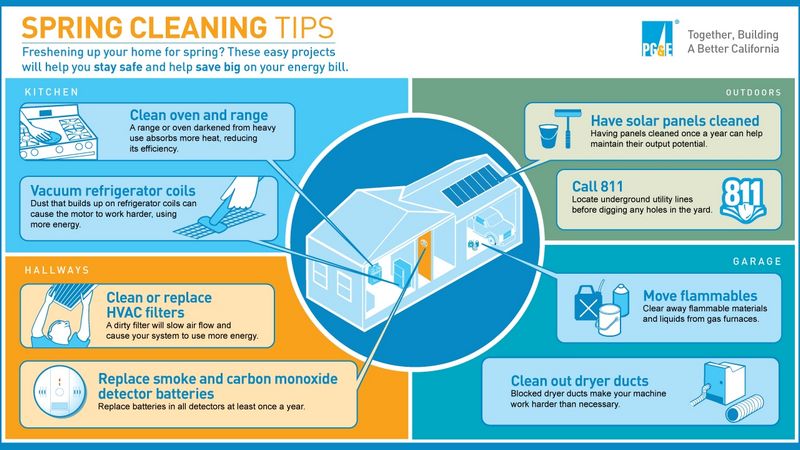
When it comes to operating heating, ventilation, and air conditioning (HVAC) equipment, it’s important to prioritize electrical safety. Failure to do so can result in serious accidents, injuries, and even fires. Follow the tips below to ensure the electrical safety of your HVAC equipment.
- Regular Inspection: Schedule regular inspections by a qualified technician to identify any potential electrical issues in your HVAC system. This includes checking the wiring, connections, and circuit breakers.
- Proper Installation: Always hire a licensed professional to install your HVAC system. Improper installation can lead to electrical hazards, such as faulty wiring, which can cause electrical shocks or short circuits.
- Keep it Dry: Ensure that there is no moisture around your HVAC equipment, as it can damage the electrical components and increase the risk of electrical malfunctions. Avoid placing it near water sources, such as pipes or leaky faucets.
- Use Dedicated Circuits: HVAC systems require a significant amount of power to operate. Therefore, it’s crucial to have dedicated circuits for your heating and cooling equipment. Avoid overloading circuits by plugging in other appliances along with your HVAC system.
- Regular Maintenance: Keep your HVAC system well-maintained to prevent electrical problems. This includes cleaning or replacing the air filters, lubricating motor parts, and checking wiring connections.
- Turn Off Power: Before performing any maintenance or repairs on your HVAC system, always turn off the power supply. This helps prevent accidental electrical shocks while working with the electrical components.
- Do Not DIY: Avoid attempting to repair or modify electrical components of your HVAC system on your own unless you have proper knowledge and experience. Electrocution and other serious accidents can occur if not handled correctly.
- Ground Fault Circuit Interrupters (GFCIs): Install GFCIs in areas where water is present, such as bathrooms or basements. GFCIs can detect electrical faults and shut off power, preventing electric shocks or electrocution.
- Fire Safety: Install smoke detectors near your HVAC equipment and test them regularly to ensure they are functioning properly. In case of a fire, having a working smoke detector can alert you and your family, allowing you to safely evacuate.
- Professional Assistance: If you notice any unusual smells, sounds, or sparks coming from your HVAC system, immediately turn it off and contact a licensed HVAC professional for assistance. Ignoring these signs can lead to severe electrical hazards.
By following these electrical safety tips, you can protect your home, family, and HVAC equipment from potential electrical hazards.
Importance of Indoor Air Quality
Indoor air quality (IAQ) plays a significant role in maintaining a healthy and safe living environment. Poor IAQ can lead to various health issues, including respiratory problems, allergies, and asthma. It is crucial to prioritize the quality of the air we breathe in our homes, especially considering that we spend a significant amount of time indoors.
The HVAC system plays a vital role in maintaining optimal indoor air quality. Proper ventilation, heating, and air conditioning are essential components in ensuring a healthy and comfortable living space. Regular maintenance and inspections of your HVAC system are necessary to prevent potential air quality issues.
Here are some important tips to ensure good indoor air quality:
- Regular HVAC Maintenance: Schedule regular maintenance for your HVAC system, including air duct cleaning and filter replacements. This helps to remove dust, pollen, and other airborne particles from the system, promoting cleaner air circulation.
- Proper Ventilation: Ensure that your home has proper ventilation systems in place. This allows for the exchange of indoor and outdoor air, reducing the concentration of pollutants indoors.
- Keep a Clean Home: Regularly clean your home to eliminate dust, pet dander, and other potential allergens. Vacuum and dust on a regular basis, and keep carpets and upholstery clean.
- Monitor Humidity Levels: High humidity can lead to mold growth and increased levels of allergens. Use dehumidifiers in areas with excessive moisture, such as basements or bathrooms, to maintain optimal humidity levels.
- Avoid Smoking Indoors: Smoking indoors significantly degrades indoor air quality. Encourage smokers to smoke outside, away from windows and doors, to prevent smoke from entering the house.
By following these tips and taking proper care of your HVAC system, you can ensure that your home has good indoor air quality. Regular inspections and maintenance by HVAC professionals will help to identify and resolve any potential issues before they become major problems. Remember, the quality of the air we breathe is essential for our overall health and well-being.
HVAC Safety Tips for Pet Owners
Pets bring joy and companionship to our lives, but they can also pose a safety risk to our HVAC systems. Keep your furry friends safe while ensuring the longevity and efficiency of your heating, ventilation, and air conditioning (HVAC) system with these helpful tips:
- Regular HVAC Maintenance: Schedule regular HVAC maintenance to ensure that your system is in optimal condition. This includes cleaning and changing filters, inspecting ducts, and checking for any potential issues that could be caused by pet hair or dander.
- Keep Vents Clear: Make sure that vents and grilles are not blocked by furniture, toys, or pet beds. This will ensure proper airflow and prevent your HVAC system from working harder than necessary.
- Secure Outdoor Units: If you have an outdoor HVAC unit, make sure it is securely fenced off to prevent pets from getting too close. Pets may be curious and can cause damage to the unit or injure themselves.
- Prevent Chewed Wires: Some pets have a tendency to chew on wires. Keep an eye out for any wires that may be exposed or easily accessible to your pets. Consider using pet-friendly cord covers or deterrent sprays to protect them from chewing.
- Clean Pet Hair and Dander: Regularly clean up pet hair and dander to prevent it from clogging your HVAC system. Use a pet-friendly vacuum cleaner and consider using air purifiers or filters to improve air quality.
- Protect Outdoor HVAC Components: If you have a fenced outdoor area where your pets roam, make sure to protect any exposed HVAC components, such as condenser units or refrigerant lines. Pets can inadvertently cause damage by scratching or biting these components.
- Provide Proper Ventilation: Ensure that your pets have access to fresh air and proper ventilation. This can be achieved by opening windows or using pet-friendly ventilation systems.
By following these HVAC safety tips for pet owners, you can create a safe and comfortable environment for both your beloved pets and your HVAC system. Regular maintenance and inspections are key to ensuring the longevity of your system and the well-being of your furry friends.
Childproofing Your HVAC System
Your HVAC system plays a crucial role in keeping your home comfortable by regulating the air temperature, ventilation, and air conditioning. However, it is important to ensure that your HVAC system is childproofed to prevent accidents and maintain the safety of your children. Here are some tips on how to childproof your HVAC system:
- Keep the air vents clear: Children are curious and may try to put small objects into air vents. Make sure all the air vents in your home are clear from toys, small objects, or any other obstruction. This will allow proper air circulation and prevent any potential hazards.
- Secure the ductwork: Children may be tempted to play with the ductwork, which can cause damage to the HVAC system and increase the risk of injury. Ensure that all the ductwork is securely fastened and out of reach of children.
- Lock the thermostat: Some thermostats are easily accessible to children, who may accidentally change the settings or turn off the heating or cooling. Install a lock or cover for your thermostat to prevent any unwanted changes.
- Teach HVAC safety: Educate your children about the importance of safety around the HVAC system. Teach them that it is not a toy and should not be played with. Make sure they understand the potential dangers and consequences of tampering with the system.
- Maintain regular HVAC inspections: Schedule regular maintenance and inspections for your HVAC system to ensure it is in proper working condition. A professional technician can identify any potential safety issues and address them before they become a problem.
- Install safety covers: Consider installing safety covers for the HVAC system components that are easily accessible, such as the air conditioner unit or heating elements. These covers can prevent accidental contact and reduce the risk of injury.
By following these childproofing tips, you can help ensure the safety of your children and maintain the proper functioning of your HVAC system. Remember, regular maintenance and inspections are essential for keeping your HVAC system running efficiently and safely.
Protecting Your HVAC System during Home Renovations
When planning a home renovation project, it is important to consider the impact it may have on your HVAC system. Without proper protection, your heating, ventilation, and air conditioning system could suffer damage or become contaminated. Here are some tips to help you protect your HVAC system during home renovations:
- Schedule an inspection: Before you begin any renovation work, have a professional HVAC technician inspect your system. They can identify any existing issues and provide recommendations on how to protect your system during the renovation.
- Maintain a clean workspace: Keep the area around your HVAC system clean and free of debris. This will help prevent dust and other particles from getting inside your system and causing damage or reduced efficiency.
- Seal off the work area: If possible, seal off the area where the renovation work is taking place. Use plastic sheeting to create a barrier between the work area and your HVAC system. This will help prevent dust, paint, or other contaminants from entering the system.
- Turn off the HVAC system: During renovation work, it is best to turn off your HVAC system to minimize the risk of damage. This will prevent dust and debris from being circulated throughout your home and potentially clogging the system.
- Protect air vents and intake grilles: Cover air vents and intake grilles with plastic or temporary filters to prevent dust and debris from entering the system. This will help maintain good air quality and prevent damage to sensitive components.
- Monitor air quality: Keep an eye on the air quality in your home during renovations. If you notice excessive dust or a decline in air quality, consider using air purifiers to help remove contaminants from the air.
By following these safety tips, you can help protect your HVAC system during home renovations. Remember to schedule an inspection before starting any work and take necessary precautions to maintain the air quality and efficiency of your HVAC system.
Safely Using Space Heaters in Conjunction with HVAC
When the colder months arrive, many homeowners rely on space heaters to provide additional warmth in their homes. However, it’s important to use space heaters safely, especially when they are used in conjunction with a home’s HVAC system. Here are some tips to ensure the safe use of space heaters while still benefiting from the comfort of a well-functioning HVAC system:
- Proper ventilation: When using space heaters and HVAC systems together, it’s crucial to ensure proper ventilation. Make sure that the space heater is placed in a well-ventilated area, away from any obstructions or flammable materials.
- Regular inspection: Regularly inspect both the space heater and the HVAC system for any signs of damage or malfunction. Replace or repair any faulty components immediately to prevent potential safety hazards.
- Heating load management: When using a space heater alongside an HVAC system, it’s important to manage the heating load effectively. Avoid overworking the HVAC system by setting the thermostat at a lower temperature and using the space heater to provide additional warmth in specific areas of the house.
- Proper safety precautions: Follow the manufacturer’s instructions regarding the safe use of the space heater. Avoid using extension cords or power strips, and never leave the space heater unattended or operating while you are asleep.
In addition to these tips, it’s crucial to maintain the overall safety of your HVAC system. Schedule regular inspections and maintenance for your HVAC system to ensure its proper functioning. This includes cleaning or replacing air filters, checking for any blockages or leaks, and ensuring adequate airflow.
By following these safety tips and practicing responsible use of space heaters in conjunction with your HVAC system, you can ensure a warm and comfortable home without compromising the well-being of your family and property.
Importance of Smoke and Carbon Monoxide Detectors
Smoke and carbon monoxide detectors are essential for maintaining a safe environment in any home, especially when it comes to HVAC systems. These detectors provide early warning signs of potential hazards, allowing homeowners to take quick action to protect their home and family.
Here are some tips on the importance of smoke and carbon monoxide detectors:
- Prevention: Smoke and carbon monoxide detectors are crucial in preventing fires and carbon monoxide poisoning. They detect the presence of smoke or high levels of carbon monoxide in the air and sound an alarm, giving occupants time to evacuate or take necessary precautions.
- Inspection: Regularly inspect smoke and carbon monoxide detectors to ensure they are functioning properly. Test the alarm and replace the batteries at least twice a year or as recommended by the manufacturer.
- Early detection: Smoke and carbon monoxide detectors provide early warning signs of potential HVAC system issues. They can detect malfunctioning equipment, such as a faulty furnace, and notify homeowners before it becomes a safety hazard.
- Proper conditioning and ventilation: HVAC systems require proper conditioning and ventilation to prevent the buildup of smoke or carbon monoxide. Smoke detectors can identify if there is an issue with the ventilation system, allowing homeowners to address the problem promptly.
- HVAC safety: Smoke and carbon monoxide detectors play a vital role in HVAC safety. They can detect leaks in gas furnaces or other appliances, reducing the risk of carbon monoxide poisoning. It is important to have detectors installed near HVAC units and in bedrooms or other sleeping areas.
Maintaining and regularly testing smoke and carbon monoxide detectors is crucial for the safety of your home and family. By following these tips and incorporating these detectors into your HVAC system, you can ensure a safe and comfortable living environment.
Question-answer:
How can I ensure the safety of my HVAC system?
To ensure the safety of your HVAC system, make sure to schedule regular maintenance with a professional technician. Additionally, you should keep the area around your HVAC unit clear of any debris or flammable materials. It is also important to regularly change the air filters and to check for any signs of wear or damage.
What are some common safety hazards associated with HVAC systems?
Some common safety hazards associated with HVAC systems include electrical issues, carbon monoxide leaks, and fire hazards. Electrical issues can arise from faulty wiring or outdated electrical components. Carbon monoxide leaks can occur if there is a problem with the HVAC unit’s combustion chamber or exhaust system. Fire hazards can arise if the HVAC unit is placed near flammable materials or if there is a buildup of dust and debris in the system.
How often should I have my HVAC system inspected?
It is recommended to have your HVAC system inspected at least once a year. This will help identify any potential issues or safety hazards and allow for necessary repairs to be made. Regular inspections can also help extend the lifespan of your HVAC system and improve its efficiency.
What should I do if I suspect a carbon monoxide leak from my HVAC system?
If you suspect a carbon monoxide leak from your HVAC system, you should immediately evacuate your home and call emergency services. Carbon monoxide is a toxic gas that is odorless and colorless, making it difficult to detect without a carbon monoxide detector. It is important to have carbon monoxide detectors installed in your home and to regularly check their batteries to ensure they are working properly.
Are there any precautions I should take when working on my HVAC system myself?
If you are planning to work on your HVAC system yourself, it is important to take a number of precautions to ensure your safety. First, make sure to turn off the power to the unit before starting any work. Additionally, wear appropriate safety gear such as gloves and goggles to protect yourself from potential hazards. If you are unsure about any aspect of the work or if it involves complex repairs, it is best to consult a professional technician.


